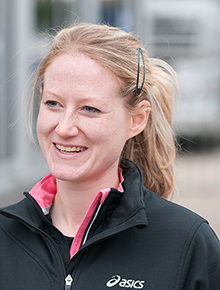-
-
- Council Members
- Role of Council Members
- Council meetings
- Council elections
- Previous election results
- Dr Louise Allum
- Dr Sam Bescoby
- Dr Andrew Clemence
- Dr Tshidi Gardiner
- Dr Reginald Godwin
- Paddy Gordon
- Dr Danielle Greenberg
- Dr Gerard Henry
- Dr Richard Hillman
- Dr Benjamin Kennedy
- Dr Tom Lonsdale
- Dr Darren Partridge
- Martin Peaty
- Alison Price
- Dr Peter Robinson
- Dr Jennifer Simmons
- Dr Sadie Spencer
- Dr Mary Thomas
- William Wilkinson
- Dr Lara Wilson
- Past-Presidents
-
-
-
-
-
- About extra-mural studies (EMS)
- EMS requirements
- Information for vet students
- Information for EMS providers
- Information for vet schools
- Temporary EMS requirements
- Practice by students - regulations
- Health and safety on EMS placements
- EMS contacts and further guidance
- Extra-mural studies fit for the future
-
-
- Code of Professional Conduct for Veterinary Surgeons
- Code of Professional Conduct for Veterinary Nurses
- Contact the Advice Team
- XL Bully dog ban
- 'Under care' - guidance
- Advice on Schedule 3
- Controlled Drugs Guidance – A to Z
- Dealing with Difficult Situations webinar recordings
- FAQs – Common medicines pitfalls
- FAQs – Routine veterinary practice and clinical veterinary research
- FAQs – Advertising of practice names
- GDPR – RCVS information and Q&As
Vet Futures poll asks profession about mental ill-health
12 January 2015
 This month, Vet Futures, our joint initiative with the BVA, asks members of the profession whether they would recognise mental health problems in their colleagues.
This month, Vet Futures, our joint initiative with the BVA, asks members of the profession whether they would recognise mental health problems in their colleagues.
The question is posed in relation to the second Vet Futures guest blog which, this January, is written by Rosie Allister (pictured), the Chair of the Vet Helpline and a Director of the Veterinary Benevolent Fund.
She argues that members of the profession need to be more open about the mental health challenges they experience and not be afraid to seek help.
Rosie, who is also a researcher at the University of Edinburgh specialising in veterinary wellbeing, writes that members of the profession should be more willing to open up about their own mental health problems and intervene by talking and listening to colleagues who may be suffering from mental ill-health.
For example, she says: “Looking to the future, we need to better understand who is most at risk, how to reach out to them, and how we can start to change our culture so that it is OK to ask for help.”
She also proposes that, due to the caring nature of the occupation and high client expectations, members of the profession routinely put work and animal welfare ahead of their own needs and that, in order for there to be wider cultural change, individuals need to change their own attitudes towards asking for help.
This includes the discussion of ‘taboo subjects’ such as suicide.
“Perhaps all of us have to start trying to change our culture to one that is more accepting and supportive and looks out for those in need even when they aren’t able to reach out themselves”, she writes.
She writes following the December 2014 launch of our Mind Matters Initiative, which aims to change the culture of the profession by reducing stigma surrounding mental ill-health and encouraging more open discussion.
This month’s Vet Futures poll asks: “Could you recognise the signs of mental ill-health in a colleague?” and we would encourage members of the profession to take part in the poll so that we can better understand attitudes towards and experiences of mental health issues.
Meanwhile, December’s poll had asked “Do you think your veterinary education prepared you for running a business?” for which the majority (84%) said “no”, with just 3% saying “yes” and 13% saying “partially”.
For confidential support members of the profession can call the Vet Helpline on 0303 040 2551 where calls are answered 24-hours a day by trained volunteers who have experience of the profession. Alternatively, they can use a confidential email service which can be accessed through the Vet Helpline website.